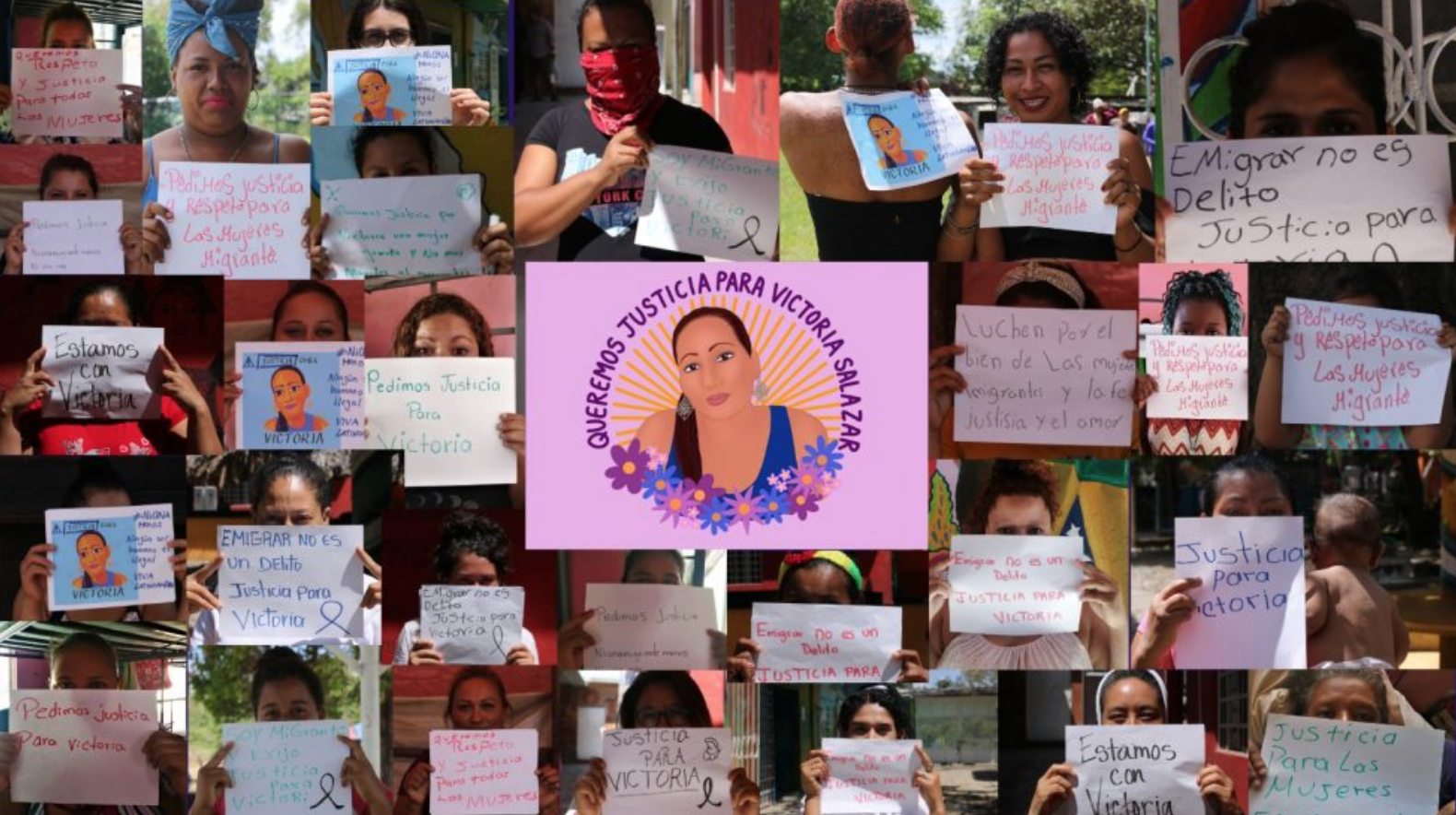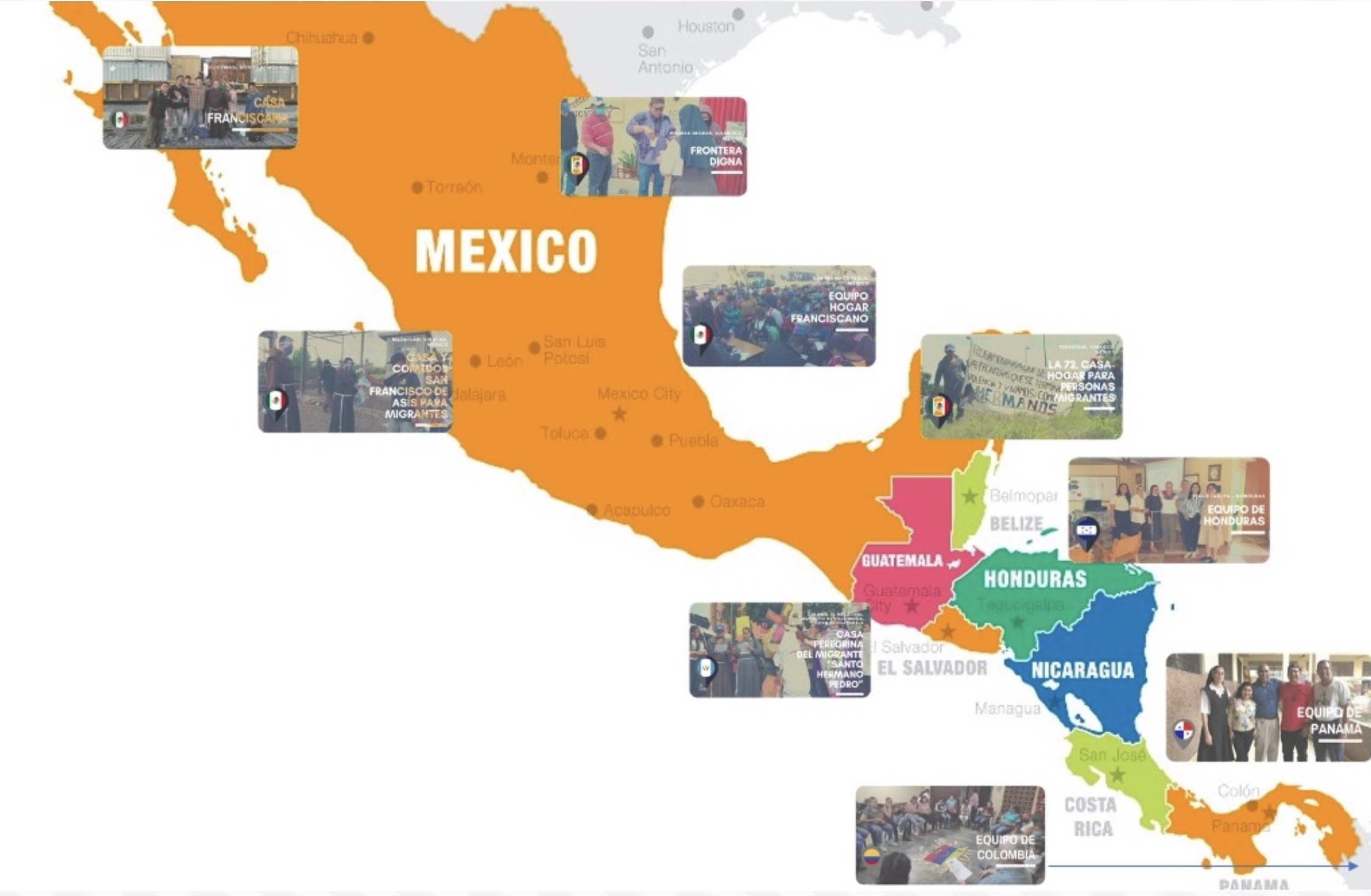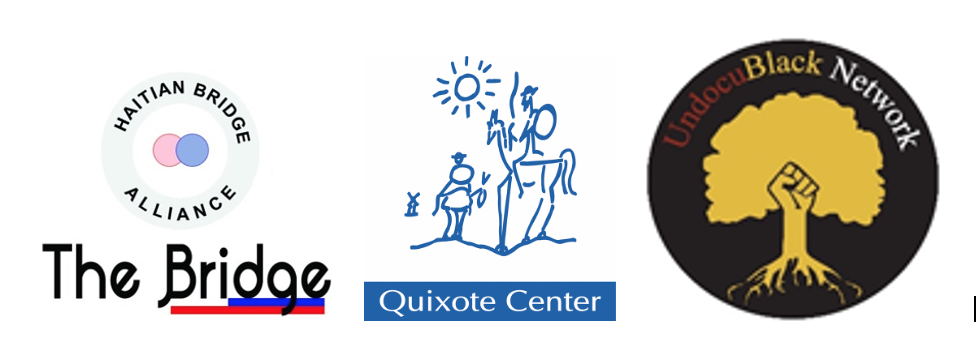Demand Justice for Victoria Esperanza Salazar Arriaza
[caption id="attachment_9270" align="alignright" width="1580"] Photo: Red Franciscana para Migrantes[/caption]
Photo: Red Franciscana para Migrantes[/caption]
Quixote Center recognizes migration as a fundamental human right under international law. In the United States, migrants strengthen our economy, enrich our culture, and strengthen our social fabric. We are a nation built by migrants for migrants.
The Quixote Center’s principal international partnership is with the Franciscan Network for Migrants (FNM). FNM connects Franciscan-run shelters and other humanitarian assistance programs for migrants who are making the dangerous trek through Mexico, Central America, and South America. We serve as the fiscal sponsor for the FNM within the United States, and coordinate advocacy efforts with their staff. We provide on-going financial support to FNM programs in Panama, a particularly strategic and dangerous migrant crossing point. We offer capacity-strengthening funding to FNM teams, so far supporting teams in Colombia, Brazil, and Mexico.
Quixote Center and FNM organize Solidarity Trips approximately every six months since 2022 as part of our advocacy and education mission, bringing U.S. based migrant justice activists and other professionals to Southern Mexico and Panama to see firsthand how the U.S. border policies impact the lives of hundreds of thousands of people fleeing their homelands to seek a new life, in the United States or elsewhere.
Find out more about our Solidarity Travel Program HERE.
Read the Red Clamor statement February 2025 in English HERE y en Español AQUI.
Read the Red Clamor Panama statement February 2025 HERE y en Español AQUI.
Read January 21st, 2025 Joint Statement with our partners at the Franciscan Network on Migration here
Read November 22nd, 2024 statement from the Franciscan Network on Migration's National Assembly in Mexico here.
Participants from our March 2025 trip to Panama hosted a webinar titled Stranded and Forgotten. You can listen to it HERE.
Participants from the March 2024 trip wrote the report: Danger in the Darién Gap: Human RIghts Abuses and the Need for Human Pathways to Safety to denounce US efforts to further externalize US border to Panama.

[caption id="attachment_9270" align="alignright" width="1580"] Photo: Red Franciscana para Migrantes[/caption]
Photo: Red Franciscana para Migrantes[/caption]
CNN reported on Thursday, April 1, “There were about 17,650 unaccompanied migrant children in US government custody….including 5,767 in CBP custody.” So, 5,767 in Border Patrol custody, leaving “about” 11,883 in the custody of Health and Human Services (or in the process of being transferred into HHS custody).

FOR IMMEDIATE RELEASE
Media Contact:
Nicole Phillips, Legal Director, Haitiian Bridge Alliance, nmp.law@gmail.com, +1 (510) 715-2855
Tom Ricker, Policy Director, The Quixote Center, tomr.quixote@gmail.com, (301) 922-8909
Biden’s Invisible Wall: New Report Describes the Hardships that Title 42 Expulsions Create for Haitian Migrant Families and Calls on Biden to Stop Expelling Migrants to Haiti
The Biden administration has negotiated an agreement with the government of Mexico for expanded immigration enforcement within Mexico in order to keep unaccompanied children and other migrants away from the U.S./Mexico border. From Reuters:
From February 1 to 26, 2021 the Biden administration removed 981 people to Haiti, including at least 270 children. In all of FY2020 (Oct 2019-Sept 2020), the Trump administration removed 895 people to Haiti through ICE’s Enforcement and Removal Operations.
Over the last week there have been several advances as well as setbacks in the evolution of immigration policy under the Biden administration. The process of bringing the Migration Protection Protocols to a close was launched and the administration’s immigration reform legislation was finally introduced in Congress. Meanwhile, new operational guidance concerning enforcement priorities for Immigration and Customs Enforcement was released to mixed reviews, while a District Court judge overturned the Biden administration’s efforts to implement a 100-day moratorium on most deportations.
On February 7, Jovenel Moise refused to step down from the presidency of Haiti. As we reported last week, there has been a flurry of activity since, as Moise has sought to secure his position and attack opponents. On the morning of February 7th, Moise had 20-23 people arrested, including a supreme court justice and police inspector, on charges that they were plotting to kill him and take control of the government.
We’ll start with the bad news. Very bad news. Last Friday we reported that the administration had agreed to a suspension of removal flights to Haiti. They were suspended for one day (Friday), On Monday the flights began again, and have continued every day this week.
Over the last few days the Biden administration has increased the removal of people from Haiti dramatically. Most of these removals appear to be Title 42 expulsions. What we’ve seen this week:
On Tuesday evening, February 2, 2021, President Biden issued an Executive Order on Creating a Comprehensive Regional Framework to Address the Causes of Migration, to Manage Migration Throughout North and Central America, and to Provide Safe and Orderly Processing of Asy
On Biden’s first day in office he issued seventeen executive orders, 6 of which dealt with some facet of immigration policy. He also released a summary of a bill his administration would be sending to Congress; and the acting head of the Department of Homeland Security issued a memorandum that called for a moratorium on deportations and shifted enforcement priorities. It was an auspicious start - which we tried to capture in some detail last week on the blog.
President Biden has been in office for three days now, and he’s been busy. On the immigration front, Biden has followed through on his promise to rescind many of Trump’s orders and rules. His administration is also working with congressional leaders on a wide-reaching immigration reform bill to be introduced very soon. Below I summarize actions taken thus far, including: